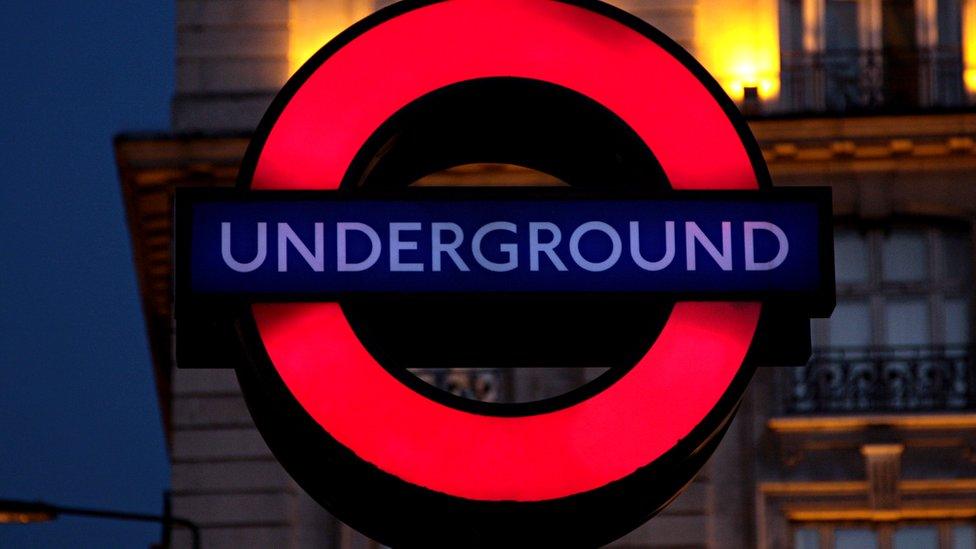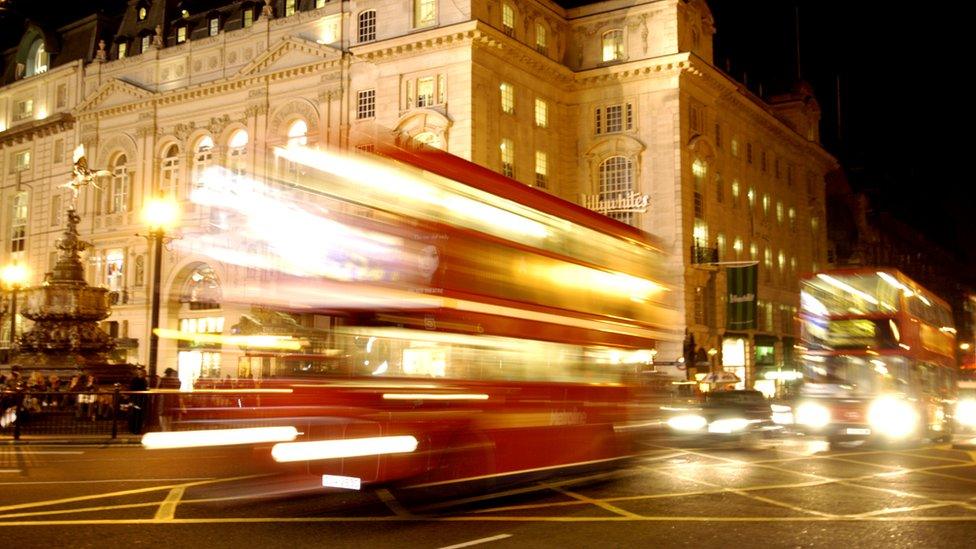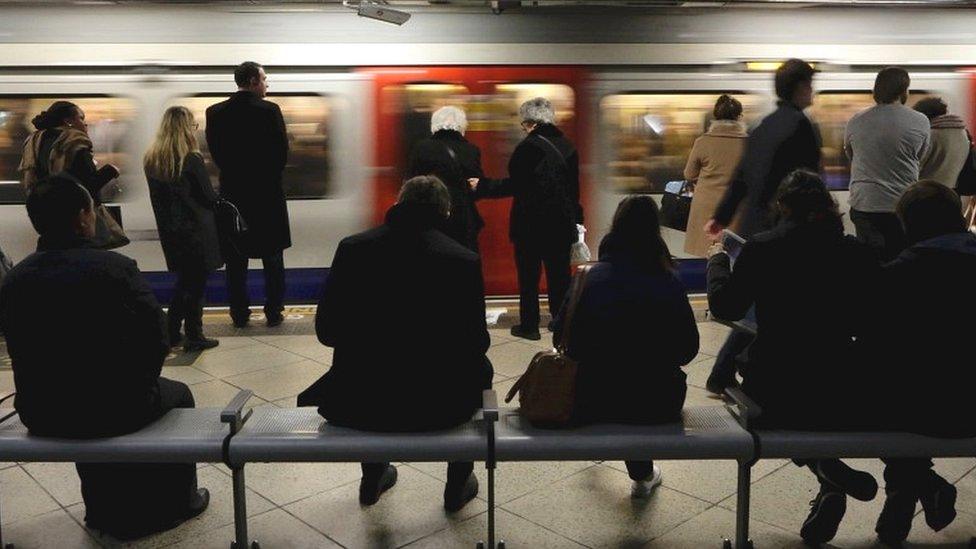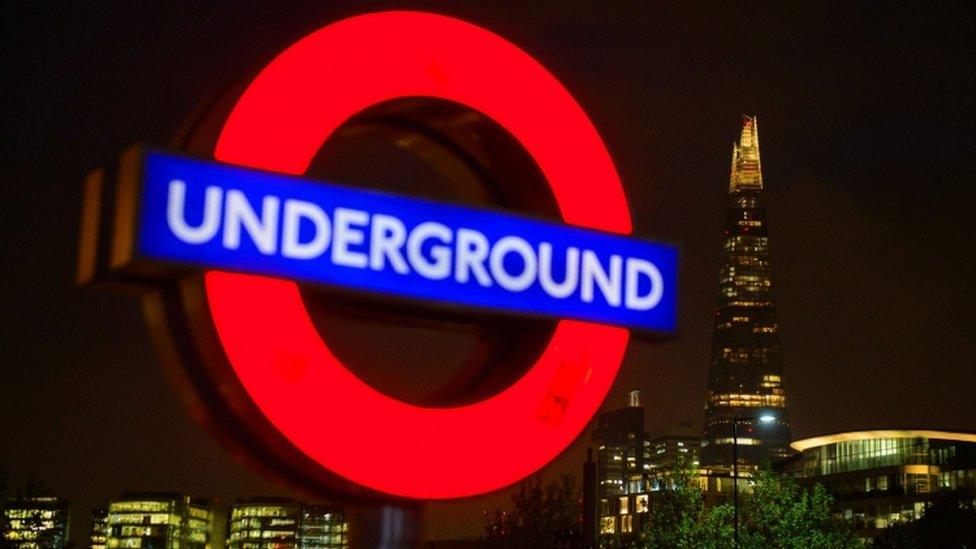Night Tube: Sex offences 'will rise' says report
- Published

Five Tube lines will be open all night on Fridays and Saturdays when the Night Tube opens
The Night Tube will lead to a rise in sexual offences and rowdy behaviour on the Underground, according to an internal risk assessment by Transport for London.
More than 100 British Transport Police (BTP) officers will patrol the 144 Underground stations open all night to try to "set behavioural standards".
The Met says overall crime levels will be unaffected.
But fewer than half of Londoners say they will feel safe on the Night Tube.
'Red' stations
A report by the London Assembly Police and Crime Committee reveals TfL believes anti-social behaviour will rise on the all-night service, causing "high crime levels" and a "rowdy environment".
The BTP has identified 12 "red" stations where a special policing plan will be put in place: Piccadilly Circus, Charing Cross, Leicester Square, Victoria, Oxford Circus, Waterloo, Vauxhall, London Bridge, Camden Town, North Greenwich, Brixton and Hammersmith.
Illegal taxi touting is expected to increase at the end of Tube lines.
However, police believe some crime will effectively be displaced from night buses to the Tube.
"Despite these concerns, BTP is confident that robust analysis has been carried out to ensure the Tube remains safe for passengers and staff, but it will be difficult to be sure until it is up and running," says the report.

Fewer people are expected to use night buses at weekends
Fear of crime
Forty-six percent of Londoners told a recent YouGov poll that they would feel safe taking the Night Tube, with 38% feeling unsafe and 16% unsure.
According to TfL's quarterly safety survey, Londoners are less likely to avoid using public transport because of a fear of crime than they were seven years ago.
Overall crime on the network has fallen, although reported sexual offences and violence against the person are up.
But although 15% had experienced unwanted sexual behaviour on the network, 90% of those did not report it.
'Horrible'
The BTP told the committee that most of these were "stealth offences committed in crowds, in crowded tube carriages, frankly, which is sexual touching and horrible behaviour like that".
A text messaging reporting service, 61016, was launched last year to encourage people to report unwanted sexual behaviour.
On the New York subway, poster messages try to deter offences, but TfL research found that women who had experienced unwanted sexual behaviour did not want to be reminded of it by posters.
- Published24 February 2016

- Published7 March 2016
